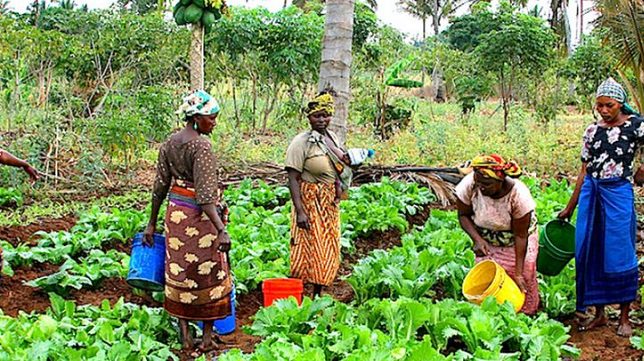The Federal Government has urged the National Assembly, civil society organisations (CSOs), media and other stakeholders to partner with her on the implementation of the National Gender Policy in Agriculture.

Dr Ernest Umakhihe, Permanent Secretary, Federal Ministry of Agriculture and Rural Development, made the appeal on Wednesday, July 7, 2021 at the opening of a Workshop on “Implementation of the 11 Objectives of the National Gender Policy on Agriculture” in Abuja.
The permanent secretary said that support from stakeholders was necessary as gender could not be mainstreamed without the support of men.
“The thrust of today’s workshop therefore hinges on charting a road map on roles, responsibilities of stakeholders and the timelines for the implementation of the policy as a demonstration of the ministry’s commitment toward engendering the agriculture sector.
“It is worthy of note that the policy equally captures the concerns of people living with disabilities,” he said.
It will be recalled that the National Gender Policy on Agriculture was inaugurated by the Minister of Agriculture and Rural Development, Alhaji Muhammad Nanono, in October 2019 and the National Gender Steering Committee for the implementation of the policy was inaugurated on April 20.
Umakhihe explained that the policy legal framework was based on recommendations of the National Gender Policy under the supervision of the Ministry of Women Affairs, Protocols and Treaties signed by the Federal Government on gender mainstreaming and the 1999 Nigeria Constitution as amended.
“These legal frameworks called for the development of the National Gender Policy on Agriculture to reduce the vulnerabilities of women and enhance food security,” he said.
He said that the Ministry of Agriculture and its agencies were committed to the socio-economic empowerment of women and girls in the sector.
”We, therefore, recognise that gender mainstreaming is ‘Smart Economics’ and a prerequisite for eradicating poverty and promoting sustainable human development,” he said.
He noted that 75 per cent of the world’s poor (women) live in rural areas and are involved in farming, who mostly depended directly or indirectly on agriculture for their livelihoods.
Umakhihe said that the Federal Government had re-positioned agriculture as a business with a return on investments as a Mantra- Agriculture as an alternative to oil, hence, gender mainstreaming in agriculture remained fundamental to economic growth and poverty reduction.
“I, therefore, request the National Assembly, Development Partners, Organised Private Sector, Civil Society Organisations (CSOs) Philanthropists, the media, other stakeholders and indeed men to partner with the ministry in the implementation of the policy as gender cannot be mainstreamed without the support of men,” he said.
Earlier, the Director, Special Duties in the ministry, Mrs Fausat Lawal, said that the National Gender Policy in Agriculture was produced to empower women, enhance food security and bridge gender gaps.
She said that the National Council on Agriculture had approved the domestication and implementation of the National Policy on Agriculture in the 36 States and the FCT.
In her goodwill message, Ms Comfort Lamptey, UN Women, Country Representative to Nigeria and ECOWAS, pledged the support of the organisation to partner with the Ministry of Agriculture on the objectives of the National Gender Policy.
Lamptey, who was represented by Mr Desmond Usemije, disclosed that the organisation had trained about 50 extension women workers as well as youth cooperative societies in the country.
”We support Nigeria Government in developing gender policy,” Lamptey said.
By Doris Esa
